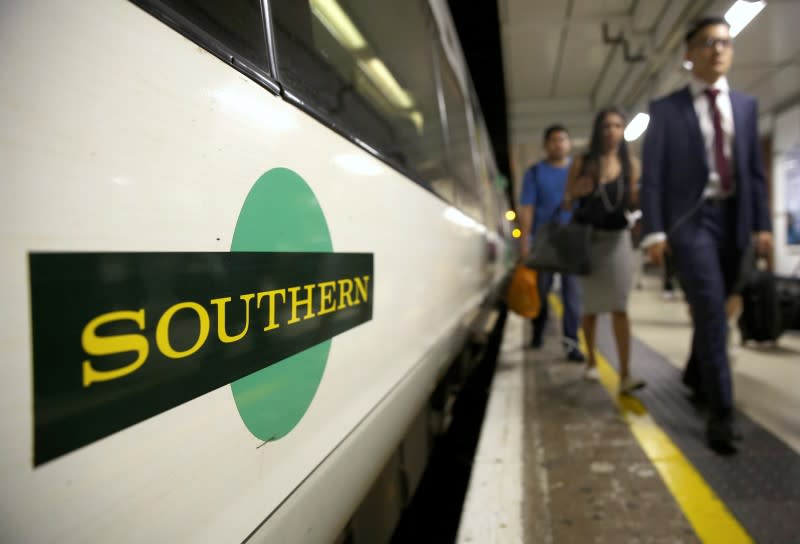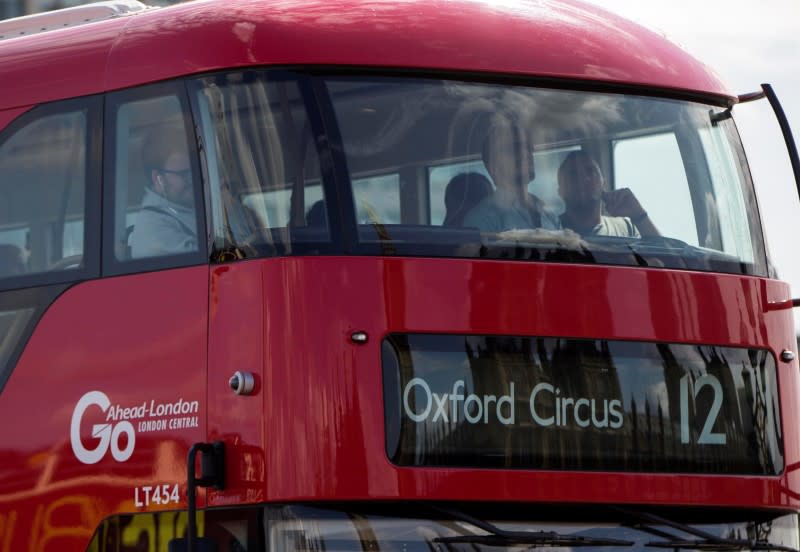Strike-prone Southern rail risks further public ire as parent company's profits surge
By Sarah Young
LONDON (Reuters) - British transport company Go-Ahead, parent of strike-hit Southern rail company, reported a 17 percent rise in annual profit on Friday, potentially adding to the anger of London commuters that use its cancellation-prone train services.
Govia Thameslink Railway (GTR), which is 65 percent owned by Go-Ahead alongside France's Keolis and operates Southern, has faced widespread criticism from passengers, politicians and the media after months of strikes, cancellations and delays on trains into London.
Some workers say they have even lost their jobs because they could not get to work on time.
Go Ahead's Chief Executive David Brown apologised to customers on Friday in a statement, and said he did not want to be considered for an annual bonus this year and had declined a salary increase.
But he defended the group's higher profits, which sent the company's shares up as much as 9 percent.
"I can't apologise for doing what I set out to do in other parts of the business because that's where the profits have come from," he told Reuters after the results release.
Go-Ahead's annual adjusted operating profit of 157.4 million pounds topped an average analysts' forecast of 153.6 million pounds, after growth in the group's bus unit and two smaller rail contracts offset GTR's performance.
Brown said GTR was a problem franchise which does not contribute to profits and which was being subsidised by the group's London buses and trains in central England and elsewhere.
"We're putting more and more resources into it (GTR) to try to meet the performance targets and that's removed our profit margin," Brown said.
Disruption on the GTR network has been due to the redevelopment of London Bridge station, a major London train hub, which has been more complex than expected and caused many more delays than forecast. That forced Go-Ahead to warn in June that the seven-year rail contract would produce margins nearer to 1.5 percent, not the 3 percent it previously expected.
Shares in Go-Ahead, whose rail services carry about a third of all passengers across Britain, were up 8 percent at 2,154 pence at 1047 GMT, having slumped by as much as a quarter since mid-June on the warning over margins and negative headlines.
"Operational challenges continue for GTR but we think bus activities alone should be worth about 2,500 pence per share," Jefferies analyst Joe Spooner said in a note.
Britain privatised its rail services in the 1990s but poor service on networks like GTR and perceptions of unreasonably high fares have led to public anger and the leader of the opposition Labour party, Jeremy Corbyn, is calling for the railways to be renationalised.
While big profits are likely to further sway Britons against transport companies like Go-Ahead, Brown said the outlook for growth was not as rosy for next year. "We think it's going to be very steady and very similar to this year," he said when asked about next year's bottom line.
The company brought its results forward so that they did not coincide with another strike on the Southern network due to start on Sept. 7.
(Editing by David Holmes and Susan Fenton)

 Yahoo Finance
Yahoo Finance 

